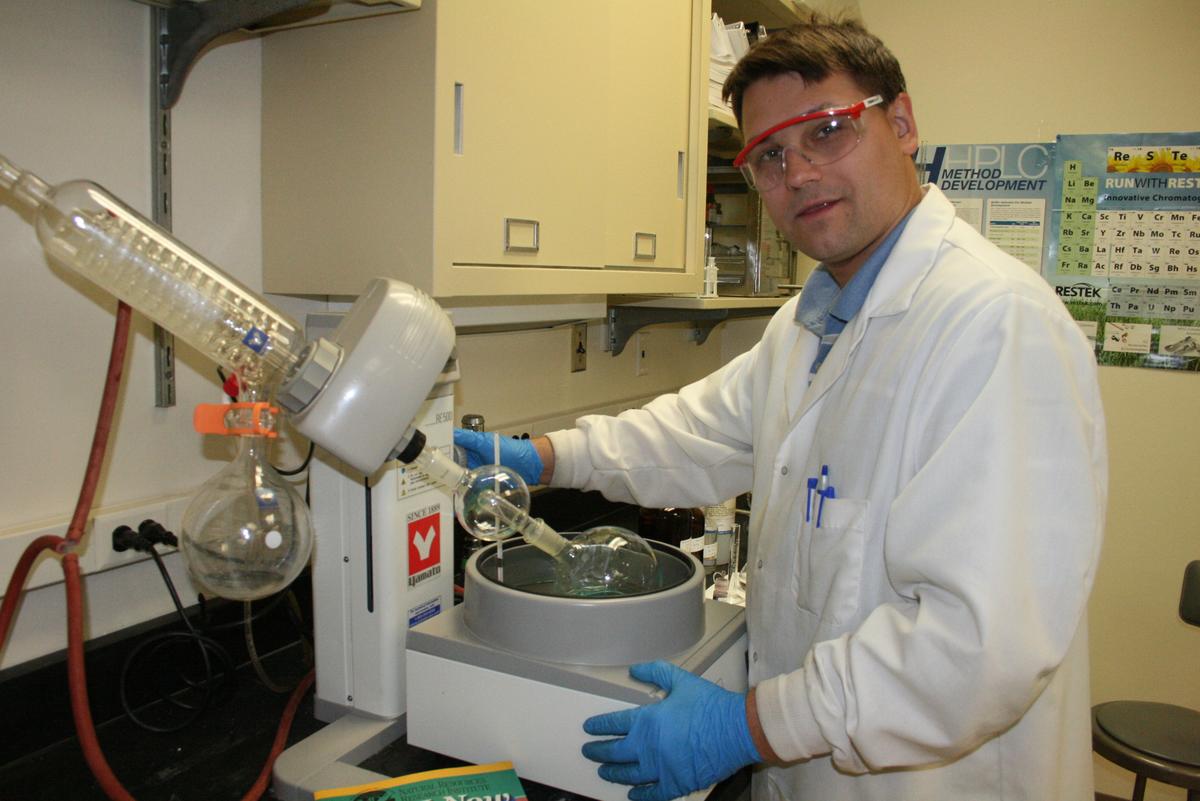A technology to maximize the potential of locally sourced peat to remove a heavy metal pollutant from industrial waste water received a patent and is being licensed in northern Minnesota. NRRI and American Peat Technology (APT) in Aitkin, received the joint patent this month.
Specifically, this patented technology removes cadmium in the presence of zinc, but does not remove the zinc. Why? Zinc is not a problem in the application this was developed for and removing zinc would make the filter less efficient. Cadmium is commonly used in batteries, pigments, coatings and electroplating. It is classified as a human carcinogen. This patent is the first approved in a portfolio of peat-based technologies that NRRI is developing for the company.
Peat is an abundant natural resource in Minnesota and APT works with NRRI to add value to this resource while developing an environmental solution. NRRI Chemist Igor Kolomitsyn worked in partnership with APT for about a year and a half to develop this highly specialized water filter media.
“We’re leveraging Igor’s high-level chemistry knowledge to make effective products for the water treatment industry,” said Peggy Jones, APT Vice President for Sales and Research. “It’s a synergy that works well for us, and we expect to continue this partnership to develop markets beyond water treatment."
In addition to the cadmium filter medium, Kolomitsyn has two more patent applications filed with the U.S. Patent and Trademark Office and several patent applications filed with the European Patent Office. Future products will target the removal of metal contaminants like copper, zinc and cobalt. Also in development are peat-based media to target the removal of other chemical species like sulfate, selenium and arsenic.
Patent number 9,561,489 “Particulate Sorption Medium Prepared from Partially Decomposed Organic Matter” was issued to Kolomitsyn, Jones and Doug Green, APT President, on February 7.
